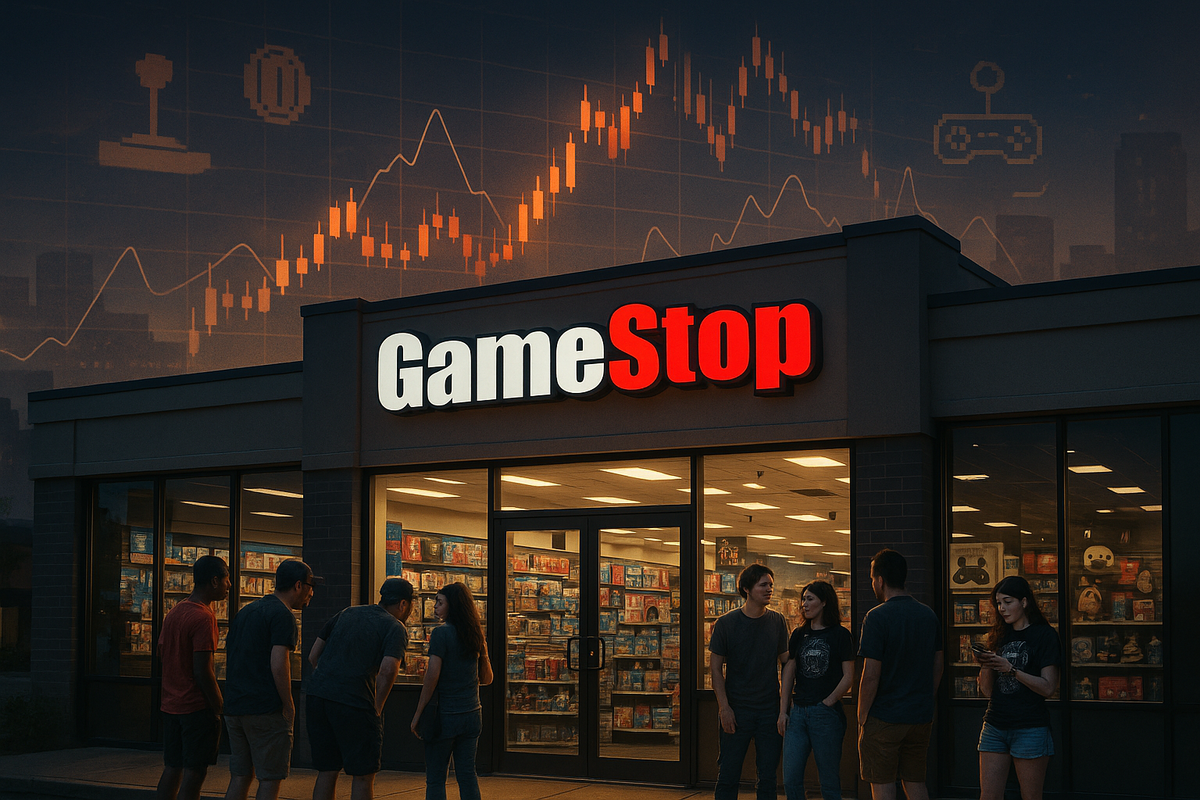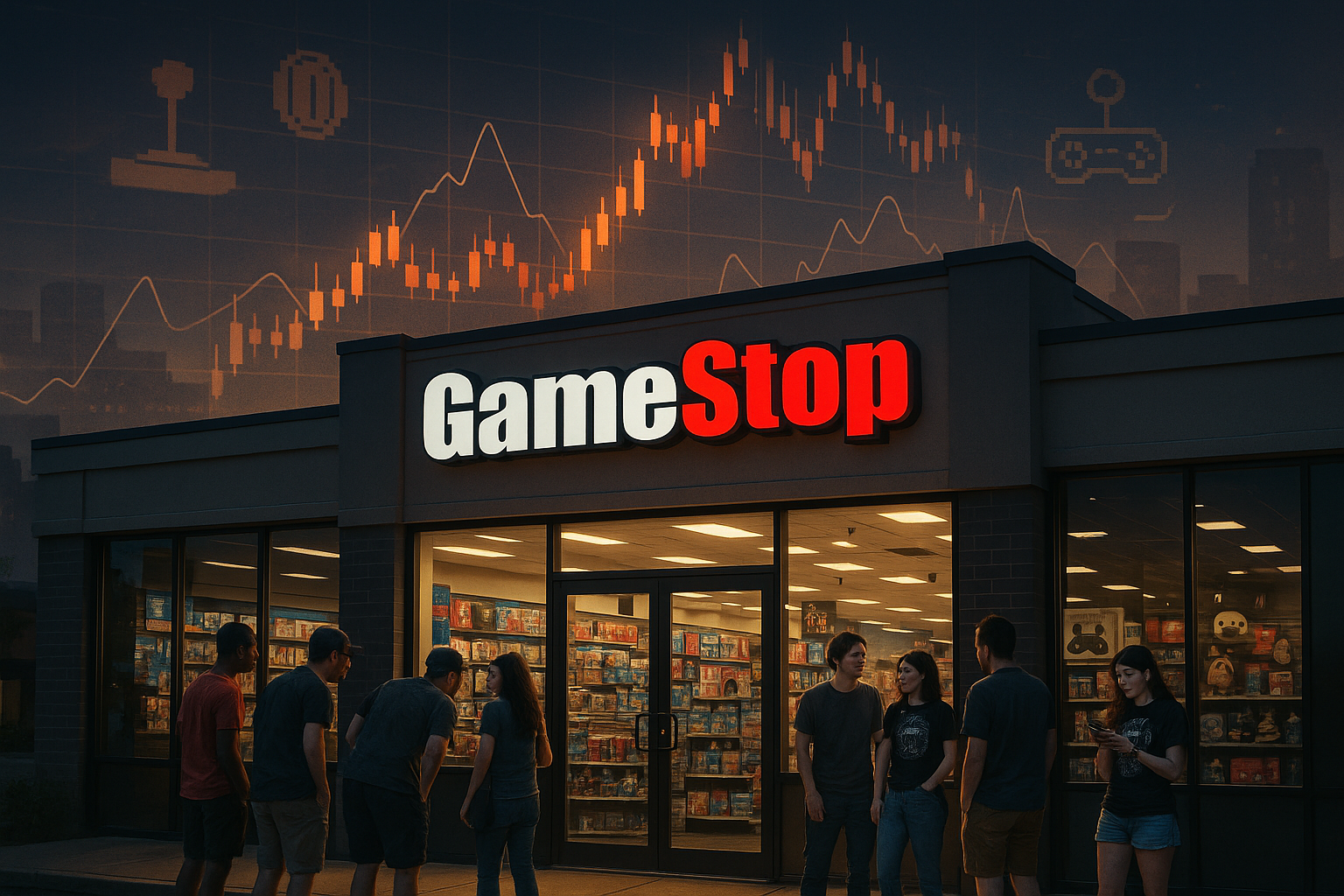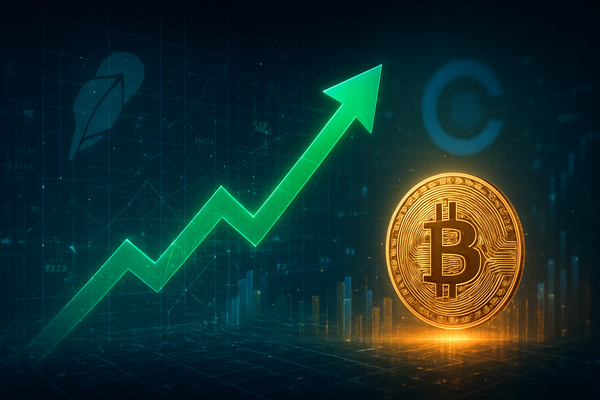History of GameStop: From Video Game Retail to Meme Stock Phenomenon (NYSE:GME)


GameStop's (NYSE:GME) story is one of unlikely endurance and dramatic transformation, traversing the worlds of brick-and-mortar retail, digital disruption, and the unpredictable dynamics of internet-fueled finance. What began as a small retailer catering to gamers eventually became the epicenter of a financial revolution, illustrating both the vulnerabilities and resilience of traditional business models in a rapidly evolving market.
The Early Days: Power to the Players
GameStop’s origins trace back to 1984, when two entrepreneurs, James McCurry and Gary Kusin, founded Babbage’s in Dallas, Texas. Initially focused on selling software for the then-nascent personal computer market, the business found its true niche in video game retailing as the popularity of gaming consoles grew in the late 1980s and early 1990s. Babbage’s expanded rapidly, merging with other retailers such as Software Etc. to form NeoStar Retail Group. After NeoStar’s bankruptcy, Barnes & Noble acquired the assets and, in 1999, rebranded the video game division as GameStop.
Becoming the Video Game Superstore
During the early 2000s, GameStop became a fixture in shopping malls and strip centers across the United States. Its business model revolved around both new and used video game sales—a key differentiator that allowed the company to generate high-margin revenues by reselling pre-owned games. GameStop went public on the New York Stock Exchange in 2002 under the ticker symbol (NYSE:GME), riding the surge of interest in gaming driven by blockbuster franchises and new console launches.
The company’s “power to the players” loyalty program, aggressive trade-in promotions, and broad selection made it a go-to destination for gamers. By 2010, GameStop operated over 6,500 stores worldwide, boasting billions in annual revenue and a strong presence in North America, Europe, and Australia.
Facing Digital Disruption
The dawn of the digital era brought mounting challenges. Publishers began offering downloadable content, and digital storefronts like PlayStation Network, Xbox Live, and Steam emerged as formidable competitors. Physical game sales declined, and the pre-owned market, once GameStop’s lifeblood, began to shrink.
Management attempted to diversify, acquiring tech retail chains like Spring Mobile and Simply Mac, but these efforts failed to offset the declines in core gaming. Store closures mounted, revenues fell, and GameStop’s stock price languished. By 2019, the company appeared to be another casualty of digital disruption, drawing comparisons to other struggling retailers.
The Meme Stock Revolution
What happened next would capture the imagination of Wall Street, regulators, and millions of retail investors. In late 2020 and early 2021, GameStop became the focus of intense discussion on internet forums such as Reddit’s WallStreetBets. Individual investors, emboldened by commission-free trading apps and the prospect of squeezing hedge funds betting against the stock, began to buy shares en masse.
The ensuing “short squeeze” in January 2021 sent (NYSE:GME) soaring from under $20 to an intraday high of $483, as hedge funds scrambled to cover their positions. Trading platforms were overwhelmed, regulators launched investigations, and media outlets chronicled the stories of everyday investors who had suddenly become millionaires—or faced crushing losses.
Reinvention and New Leadership
Amidst this frenzy, GameStop itself was changing. In 2021, activist investor Ryan Cohen, co-founder of Chewy, took a major stake in the company and joined the board, signaling a push toward e-commerce transformation. Cohen’s leadership ushered in a new era, marked by technology investments, executive shakeups, and bold—if sometimes opaque—plans to reinvent GameStop as a digital-first retailer with ventures into NFTs and Web3.
Physical store counts continued to shrink, but GameStop’s brand remained potent, powered by nostalgia, loyalty, and the enduring allure of gaming culture. By 2024, the company was far smaller in footprint but remained a staple in conversations about market volatility, financial democratization, and the clash between retail investors and Wall Street elites.
The Legacy of GameStop
GameStop’s journey is a testament to the unpredictable nature of markets and the power of collective action in the internet age. From humble beginnings as a mall retailer to its improbable transformation into a symbol of financial rebellion, GameStop’s story defies easy categorization. It stands as both a cautionary tale about the risks of disruption and an inspiring example of adaptation, resilience, and the enduring appeal of gaming.
Disclaimer:
This article is for informational purposes only and does not constitute investment advice. Please conduct your own research or consult a financial advisor before making investment decisions.



